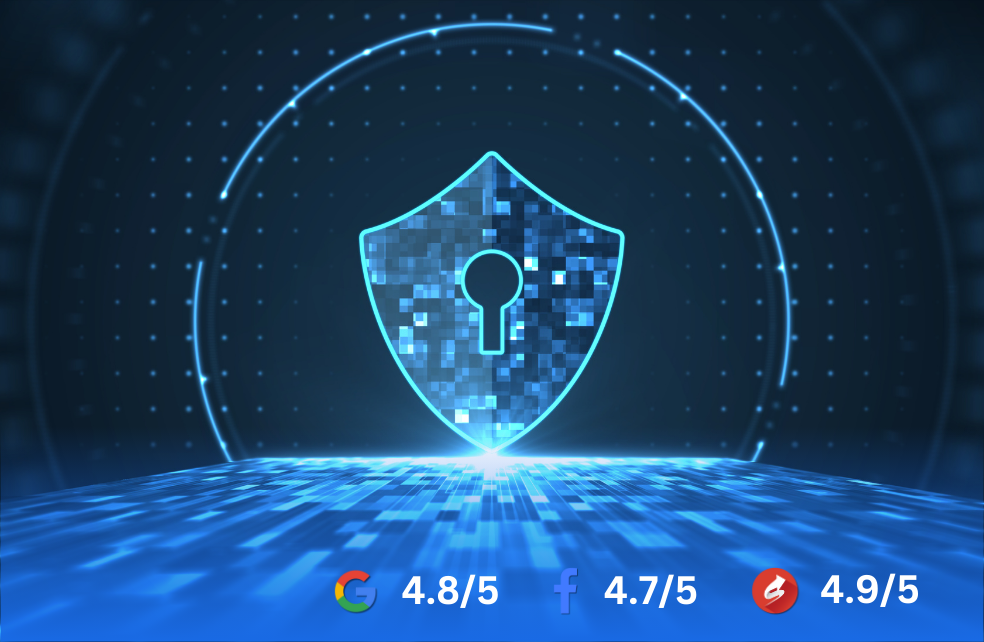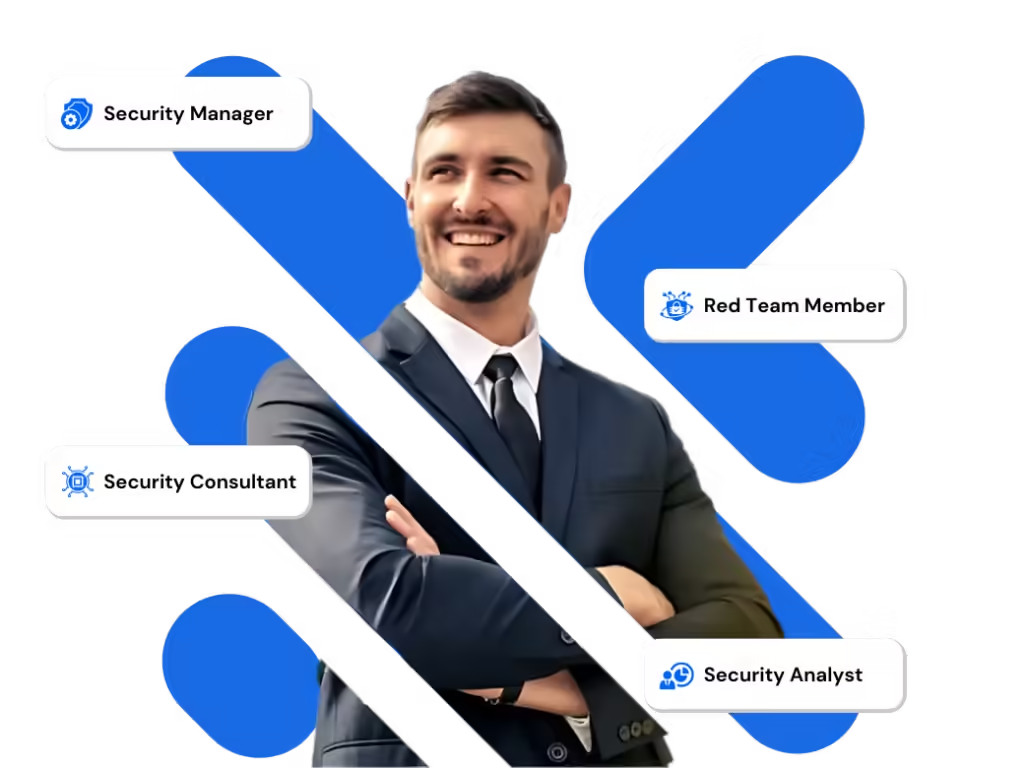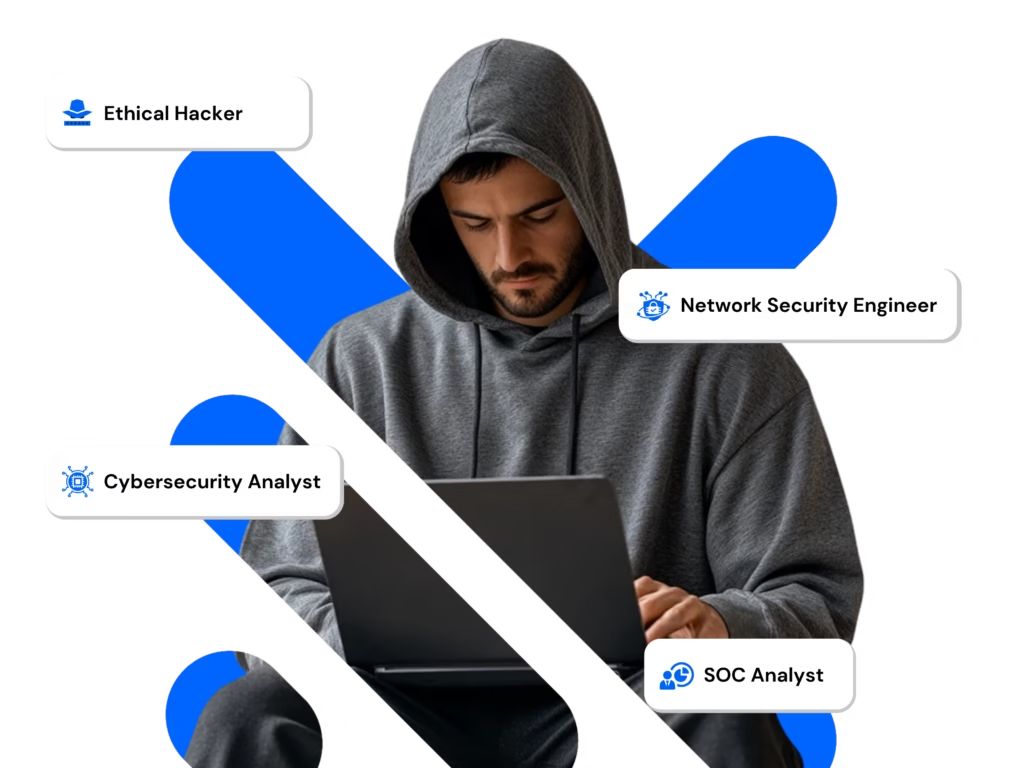- Cloud Computing
- AWS Certified Security Specialty (scs-C02)
- AWS
AWS Certified Security Specialty (scs-C02)
Achieve AWS Security Mastery with SCS-C02 Certification
Advanced Security Practices in AWS with Sense Academy





Trusted by over 30K students
- Aligned with the AWS Certified Security Specialty (scs-C02) Content Outline
- Proven Step-by-Step Blueprint for AWS Certified Security Specialty (scs-C02) Expert Success
- World's #1 AWS Certified Security Specialty (scs-C02) Prep to Pass in Your First Attempt


Ready for Rapid Career Growth? Our Learning Advisors Are Here to Help!
Enhance Team Skills with Our Corporate and In-House Training Programs
Overview
AWS Certified Security Specialty (scs-C02) Certification training
The AWS Certified Security Specialty (SCS-C02) certification is designed for professionals who specialize in implementing security solutions on the Amazon Web Services (AWS) platform. It validates advanced technical skills and knowledge in securing AWS environments, including designing and implementing security controls, managing compliance and governance processes, and mitigating security risks. Holders of this certification demonstrate expertise in protecting data, infrastructure, and applications within AWS, ensuring they meet the highest standards of security best practices. The SCS-C02 certification equips professionals to effectively address security challenges in cloud environments and is ideal for those focused on enhancing security posture and compliance within AWS deployments.
Industry Demand
Unlock Opportunities: Over AWS Certified Security Specialty (scs-C02) Jobs Available by 2030!
The AWS Certified Security Specialty (SCS-C02) certification is highly valued in the IT industry as organizations prioritize robust cloud security measures. Professionals with this certification demonstrate advanced skills in designing, implementing, and managing security solutions on AWS platforms. They are in demand for roles such as Security Engineer, Cloud Security Specialist, and AWS Security Consultant.
Salaries for AWS Certified Security Specialists typically range from $100,000 to $150,000 annually, depending on experience, location, and specific job requirements. As cybersecurity threats evolve, the demand for certified specialists in AWS security is expected to increase, offering lucrative career opportunities in cloud security and compliance roles.
Why Choose Us?
Discover the Sense Academy Advantage
Expert Instructors
Learn from industry experts with real-world experience
Flexibility
Learning formats, including online courses, workshops.
Supportive community
Connect with peers,mentors, and professionals for success
Hands-On Experience
Our courses include practical labs, real-world projects etc.
High Success Rates
Our students excel in certification and job placement
Access Recorded Sessions
Access recorded sessions anytime for flexible review.
scs-C02 COURSE PRICING
Tuition Fee
Best Seller
Live Online Classroom
Learn in expert-led live sessions
Solid Experiential Learning
- 30 Contact Hrs with Live Training
- Free On-Demand Course by Industry Experts
- Practice exams and additional resources
-
₹ 24,200₹ 22,000
Self-Paced Learning
Learn at your own pace
Solid Experiential Learning
- 30 Contact Hrs with Live Training
- Practice exams and additional resources
-
₹ 22,500₹ 19,250
WHAT YOU’LL LEARN IN THIS training
Learning Objectives
Gain proficiency in securing data, applications, and infrastructure on AWS.
Understand how to manage identity and access management (IAM) for AWS services.
Develop skills in implementing detective controls for identifying security incidents.
Master techniques for protecting AWS resources using encryption and other security measures.
Demonstrate the ability to manage compliance and governance in AWS environments effectively.
PREREQUISITES FOR this CERTIFICATION TRAINING
Prerequisites and Eligibility
- AWS Certified Cloud Practitioner or Associate-level certification
- Two or more years of hands-on experience designing and implementing security solutions using AWS services
- Ability to provide guidance on implementing best practices for securing workloads on AWS
WHO SHOULD ATTEND THis COURSE ONLINE
Who This Course Is For?
- Security Engineers
- Security Consultants
- Security Architects
- Security Specialists
- IT Professionals
- Solutions Architects
- Anyone pursuing a career in AWS security
COURSE SYLLABUS
Curriculum
- Incident Response Strategy
- Roles and responsibilities in IR plan specific to cloud incidents.
- Use case 1: Credentials compromise.
- Use case 2: Compromised EC2 Instances
- Playbooks and Runbooks for IR
- AWS Specific services helpful in Incident Response
- Third-party integration concepts
- Centralize security finding with security hub
- Detect security threats and anomalies by using AWS services
- Threat detection services specific to AWS
- Visualizing and Detecting anomalies and correlation techniques
- Evaluate finding from security services
- Performing queries for validating security events
- Create metrics filters and dashboards to detect Anomalous activity
- Respond to compromised resources and workloads
- AWS Security IR Guide
- Automating remediation by using AWS services
- Compromised resource management.
- Investigating and analyzing to conduct Root cause and log analysis.
- Capturing relevant forensics data from a compromised resource
- Protecting and preserving forensic artifacts
- Post-incident recovery
- Key AWS services for monitoring and alerting
- Monitoring metrics and baselines
- Analyzing environments and workloads to determine monitoring requirements according to
- business and security requirements
- Setting up tools and scripts to perform regular audits
- Troubleshoot security monitoring and alerting
- Configuring of monitoring services and collecting event data
- Application monitoring, alerting, and visibility challenges
- Design and implement a logging solution
- Key logging services and attributes
- Log destinations, Ingestion points and lifecycle management
- Logging specific to services and applications
- Troubleshoot logging solutions
- AWS services that provide data sources and logging capabilities
- Access permissions that are necessary for logging
- Identifying misconfigurations and remediation’s specific to logging
- Reasons for missing logs and performing remediation steps
- Design a log analysis solution
- Services and tools to analyze captured logs
- Identifying patterns in logs to indicate anomalies and known threats
- Log analysis features for AWS services
- Log format and components
- Normalizing, parsing, and correlating logs
- Design and implement security controls for edge services
- Define edge security strategies and security features
- Select proper edge services based on anticipated threats and attacks and define proper
- protection mechanisms based on that
- Define layered Defense (Defense in Depth) mechanisms
- Applying restrictions based on different criteria
- Enable logging and monitoring across edge services to indicate attacks
- Design and implement network security controls
- VPC security mechanisms including Security Groups, NACLs, and Network firewall
- Traffic Mirroring and VPC Flow Logs
- VPC Security mechanisms and implement network segmentation based on security requirements
- Network traffic management and segmentation
- Inter-VPC connectivity, Traffic isolation, and VPN concepts and deployment
- Peering and Transit Gateway
- AWS Point to Site and Site to Site VPN, Direct Connect
- Continuous optimization by identifying and removing unnecessary network access
- Design and implement security controls for compute workloads
- Provisioning and maintenance of EC2 instances
- Create hardened images and backups
- Applying instance and service roles for defining permissions
- Host-based security mechanisms
- Vulnerability assessment using AWS Inspector
- Passing secrets and credentials security to computing workloads
- Troubleshoot network security
- Identifying, interpreting, and prioritizing network connectivity and analyzing reachability
- Analyse log sources to identify problems
- Network traffic sampling using traffic mirroring
- Identity and Access Management
- Establish identity through an authentication system based on requirements.
- Managed Identities, Identity federation
- AWS Identity centre, IAM and Cognito
- MFA, Conditional access, STS
- Troubleshoot authentication issues
- Design, implement and troubleshoot authorization for AWS resources
- IAM policies and types
- Policy structure and troubleshooting
- Troubleshoot authorization issues
- ABAC and RBAC strategies
- Principle of least privilege and Separation of duties
- Investigate unintended permissions, authorization, or privileges
- Design secure connectivity between AWS and on-premises networks
- Design mechanisms to require encryption when connecting to resources.
- Requiring DIT encryption for AWS API calls.
- Design mechanisms to forward traffic over secure connections.
- Designing cross-region networking
- Design and implement controls that provide confidentiality and integrity for data at rest
- Encryption and integrity concepts
- Resource policies
- Configure services to activate encryption for data at rest and to protect data integrity by preventing
- Modifications.
- Cloud HSM and KMS
- Design and implement controls to manage the data lifecycle at rest
- Lifecycle policies and configurations
- Automated life cycle management
- Establishing schedules and retention for AWS backup across AWS services.
- Design and implement controls to protect credentials, secrets, and cryptographic key materials
- Designing management and rotation of secrets for workloads using a secret manager
- Designing KMS key policies to limit key usage to authorized users.
- Establishing mechanisms to import and remove customer-provider key material.
- Multi account strategies using AWS organization and Control tower
- SCPs and Policy multi-account policy enforcement
- Centralized management of security services and aggregation of findings
- Securing root account access
- Implement a secure and consistent deployment strategy for cloud resources
- Deployment best practices with Infrastructure as a code
- Tagging and metadata
- Configure and deploy portfolios of approved AWS services.
- Securely sharing resources across AWS accounts
- Visibility and control over AWS infrastructure
- Evaluate compliance of AWS resources
- Data classification by using AWS services
- Define config rules for detection of non-compliant AWS resources.
- Collecting and organizing evidence by using Security Hub and AWS audit manager
- Identify security gaps through architectural reviews and cost analysis
- AWS cost and usage anomaly identification
- Strategies to reduce attack surfaces
- AWS well-architected framework to identify security gaps
Information Related To Exam
Exam Information
- Exam code- SCS-C02
- Exam Format- Multiple Choice questions
- Question count- 65
- Exam Duration – 170 minutes
- Passing Score- 750/1000
Achieve Excellence: Earn the Coveted AWS Certified Security Specialty (scs-C02) Certification Today!


Unlock AWS Certified Security Specialty (scs-C02) Exam Success with Our Exclusive Offer!
AWS Certified Security Specialty (scs-C02) CERTIFICATION COURSE REVIEWS
Our Learners Love Us
4.6/5 Rated by 2000+ Learners
4.6/5 Rated by 2000+ Learners
4.6/5 Rated by 2000+ Learners
scs-C02 CERTIFICATION FAQS
Frequently Asked Questions
AWS Certified Security Specialty (SCS-C02) certification is suitable for security engineers, security architects, IT professionals, and anyone responsible for designing and implementing secure AWS solutions.
Benefits include recognition as an AWS security expert, enhanced career opportunities, credibility with employers, and the ability to implement robust security measures in AWS environments.
AWS Certified Security Specialty (SCS-C02) certification focuses specifically on AWS security, distinguishing holders with expertise in designing, implementing, and troubleshooting security solutions within AWS compared to other AWS certifications.
Recommended resources include AWS security documentation, official AWS training courses for SCS-C02, hands-on labs, practice exams, and AWS security sessions for advanced insights.
RECOMMENDED COURSES.
Learners Also Enrolled For
Chief Information Security Officer | CCISO
- Recorded Sessions
- 45 Hours
- Hybrid
- Exam Voucher









